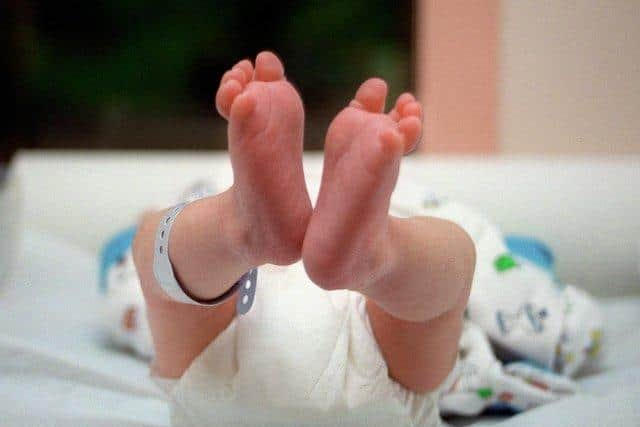Number of births in Scotland 'rises slightly' in 2021 after record low
Data from the National Records of Scotland (NRS) suggests 47,785 babies were registered in 2021, the second lowest total since 1855.
This compares to 46,809 the year before. It is only the second time births have risen since the financial crash in 2008.
Advertisement
Hide AdAdvertisement
Hide AdA spokeswoman for the NRS said it was too early to tell if the tide was turning.


She said: "The currently available data suggests that births in 2020 and 2021 were broadly similar, with 2021 only very slightly higher than 2020.
"This small increase is not enough to determine whether the trend is turning yet."
Ministers recently commissioned new research into attitudes to having children in Scotland amid concerns over the country's record low birth rate.
Analysis indicates that by 2045, there will be 200,000 fewer children and 300,000 more people over the age of 65 in Scotland.
The NRS projects the country's population will reach a peak of 5.48 million in 2028 before falling to 5.39 million by 2045.
The Government’s new research hopes to gain an "in-depth understanding of views on having children, childlessness, attitudes to ideal family size, and barriers and enablers to achieving ideal family size".
The latest birth figures are contained in monthly data published by the NRS. Finalised figures for 2021 will not be published until the summer.
Advertisement
Hide AdAdvertisement
Hide AdSeparate figures showing the number of births by month of “occurrence”, rather than registration, indicate there were 47,928 in 2021, compared to 47,640 the year before.
Dr Sarah Christison, an academic at the University of St Andrews who studies population change, previously told our sister paper Scotland on Sunday the declining birth rate was “a cause for concern”.
She said: "In the future after Brexit, we don't know what migration policy will look like.
"So if we have a decline in migration, along with continuous falling birth rates, we could have slower population growth or possibly some population decline depending on how far birth rates fall and how migration falls.
"And that leads to a speeding up of an ageing population, which obviously shrinks the working age population and can have impacts on the economy."
Comments
Want to join the conversation? Please or to comment on this article.
